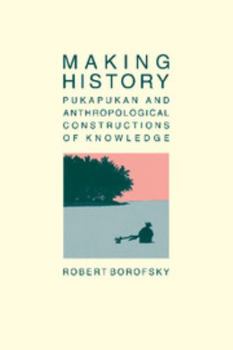Making History: Pukapukan and Anthropological Constructions of Knowledge
Select Format
Select Condition 
Book Overview
Making History begins with a puzzle. In 1976 the inhabitants of Pukapuka, a Polynesian island in the South Pacific, revived a traditional form of social organization that several authoritative Pukapukan informants claimed to have experienced previously in their youth. Yet five professional anthropologists, who conducted research on the island prior to 1976, do not mention it in any of their writings. Had the Pukapukans 'invented' a new tradition? Or had the anthropologists collectively erred in not recording an old one? In unraveling this puzzle, Robert Borofsky compares two different ways of 'making history', two different ways of constructing knowledge about the past. He examines the dynamic nature of Pukapukan knowledge focusing on how Pukapukans, in the process of learning and validating their traditions, continually change them. He also shows how anthropologists, in the process of writing about such traditions for Western audiences, often overstructure them, emphasizing uniformity at the expense of diversity, stasis at the expense of change. As well as being of interest for what it reveals about Pukapukan (and more generally Polynesian) culture, Making History helps clarify important strengths and limitations of the anthropological approach. It provides valuable insights into both the anthropological construction of knowledge and the nature of anthropological understanding.
Format:Paperback
Language:English
ISBN:0521396484
ISBN13:9780521396486
Release Date:July 1990
Publisher:Cambridge University Press
Length:224 Pages
Weight:0.70 lbs.
Dimensions:0.6" x 6.0" x 8.9"













